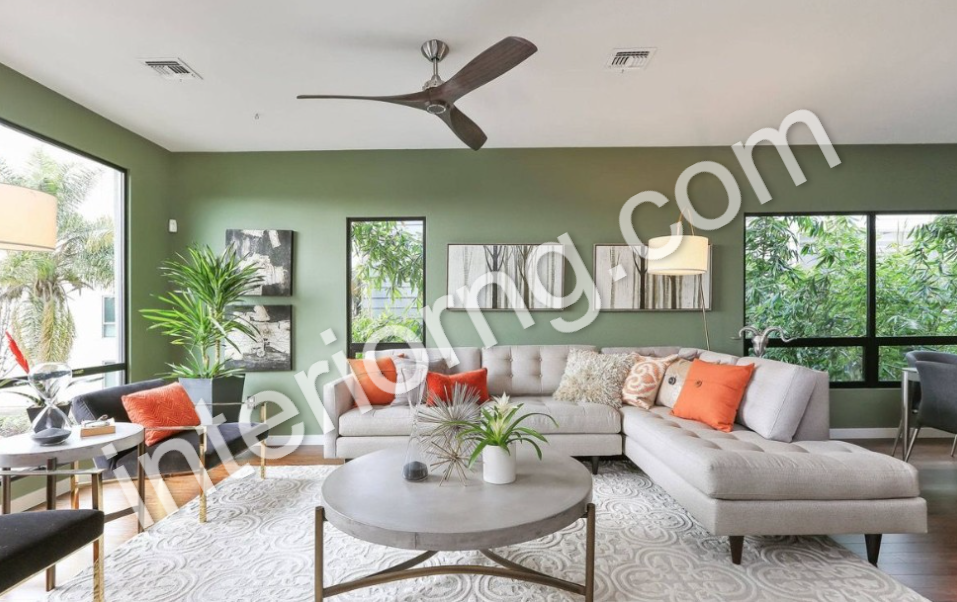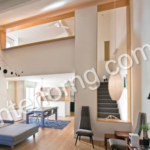Interior Design in Nigeria is fast growing by the day. Interior design is an ever-evolving industry that has a significant impact on our daily lives. Whether it’s the comfort of our homes, the functionality of our offices, or the aesthetic appeal of public spaces, interior designers play a critical role in shaping the spaces we inhabit. In Nigeria, the demand for interior design services is on the rise, as more and more people seek to create comfortable, stylish, and functional living spaces that reflect their unique personalities and lifestyle
- History of interior design in Nigeria
- Trends and styles in Nigerian interior design
- The role of interior designers in Nigeria
- Challenges facing the interior design industry in Nigeria
- INCREASING THE DEMAND FOR INTERIOR DESIGN IN NIGERIA
- Education and Awareness Campaigns
- Collaboration with Other Industries
- Emphasis on Quality and Customer Service
- Innovative Marketing Strategies
History of interior design in Nigeria
The history of interior design in Nigeria is deeply rooted in the country’s rich cultural heritage. For centuries, traditional Nigerian design has been characterized by bold patterns, vibrant colors, and intricate designs that reflect the diverse cultural and religious influences of the country. With the arrival of colonialism in Nigeria, the interior design industry underwent significant changes, as European styles and techniques were introduced and incorporated into local design practices. In recent decades, globalization has further influenced the evolution of interior design in Nigeria, with designers incorporating elements of international design into their projects. Despite these changes, traditional Nigerian design continues to play an important role in the country’s interior design aesthetic. From the intricate carved wooden doors and furniture found in traditional homes, to the use of vibrant textiles and handwoven baskets, traditional design elements can be seen throughout the country’s modern interiors. By combining these traditional elements with contemporary styles and technologies, interior designers in Nigeria are creating unique and dynamic living spaces that reflect the country’s rich cultural heritage.
Trends and styles in Nigerian interior design
Contemporary Nigerian interior design is characterized by a fusion of traditional and modern styles, with a focus on comfort, functionality, and style. Bold colors, patterns, and textures are a common theme in Nigerian interior design, and designers often incorporate natural materials such as wood and stone into their projects. In recent years, the use of innovative technology and materials has become increasingly popular in Nigerian interior design, with designers incorporating elements like smart home technology and sustainable materials into their projects. From traditional tribal prints to sleek, modern furnishings, Nigerian interior design is incredibly diverse and reflects the unique tastes and styles of its clients. Whether working on a residential or commercial project, interior designers in Nigeria must be able to understand their clients’ visions and preferences, and use their expertise and creativity to bring these visions to live.
The role of interior designers in Nigeria
Interior designers in Nigeria play a critical role in creating functional and beautiful living spaces that meet the needs and desires of their clients. Working closely with clients, interior designers must be able to understand their lifestyles, preferences, and budgets, and use this information to create custom designs that meet their unique needs. Whether working on a residential or commercial project, interior designers must be able to balance the functional needs of a space with the aesthetic appeal and style desired by the client. In addition to creating functional and beautiful spaces, interior designers in Nigeria must also be able to source materials and resources from a variety of sources. From local artisans and craftspeople to international suppliers, designers must be able to find the materials and resources needed to bring their designs to life. By incorporating both local and international design elements, interior designers in Nigeria are able to create truly unique and impactful designs that reflect the cultural diversity of the country.
Challenges facing the interior design industry in Nigeria
Despite the growing demand for interior design services in Nigeria, the industry faces a number of challenges. One of the biggest challenges is a lack of professional training and certification. Many interior designers in Nigeria lack formal education and training in the industry, which can limit their ability to create high-quality designs and attract new clients. In addition, limited access to resources and materials can also be a challenge, particularly in more remote areas of the country. This can make it difficult for interior designers to bring their designs to life and can limit the creativity and innovation of the industry as a whole. Another challenge facing the interior design industry in Nigeria is a lack of awareness and understanding among the public about the value and benefits of interior design. Many people view interior design as a luxury service, and as a result, are reluctant to invest in professional design services. This lack of understanding can lead to subpar design solutions that do not meet the needs or expectations of clients. Interior design plays a critical role in shaping the spaces we inhabit, and the demand for interior design services is on the rise in Nigeria. Despite the challenges faced by the industry, the creativity and expertise of interior designers in Nigeria are helping to create unique, functional, and beautiful living spaces that reflect the country’s rich cultural heritage. By overcoming these challenges, the interior design industry in Nigeria has the potential to continue to grow and evolve, and to play an even more significant role in shaping the country’s built environment.
INCREASING THE DEMAND FOR INTERIOR DESIGN IN NIGERIA
Interior design is an important industry in Nigeria, but it is still facing challenges in terms of demand for its services. In this blog post, we will explore ways to increase the demand for interior design services in Nigeria.
Education and Awareness Campaigns
One of the ways to increase the demand for interior design services in Nigeria is through education and awareness campaigns. These campaigns can educate the public about the benefits and value of interior design and help to dispel common misconceptions about the industry. By increasing public understanding and appreciation of interior design, more people will be likely to invest in professional design services.
Collaboration with Other Industries
Another way to increase demand for interior design services in Nigeria is through collaboration with other industries, such as real estate, construction, and architecture. By partnering with these industries, interior designers can tap into new markets and reach a wider audience. This will not only increase demand for interior design services but also help to promote the industry and raise its profile.
Emphasis on Quality and Customer Service
A focus on quality and customer service is also crucial for increasing demand for interior design services in Nigeria. By providing high-quality design solutions and delivering excellent customer service, interior designers can establish a reputation for excellence and attract more clients. This will not only increase demand for interior design services but also help to establish the industry as a leader in the region.
Innovative Marketing Strategies
Finally, innovative marketing strategies can also be used to increase demand for interior design services in Nigeria. This can include using social media, hosting events and workshops, and partnering with influencers and bloggers. By leveraging technology and creative marketing tactics, interior designers can reach a wider audience and build brand awareness, which will ultimately drive demand for their services. Increasing the demand for interior design services in Nigeria will require a combination of education and awareness, collaboration with other industries, a focus on quality and customer service, and innovative marketing strategies. By addressing these challenges, the interior design industry in Nigeria has the potential to grow and evolve, and to play an even more significant role in shaping the country’s built environment.




